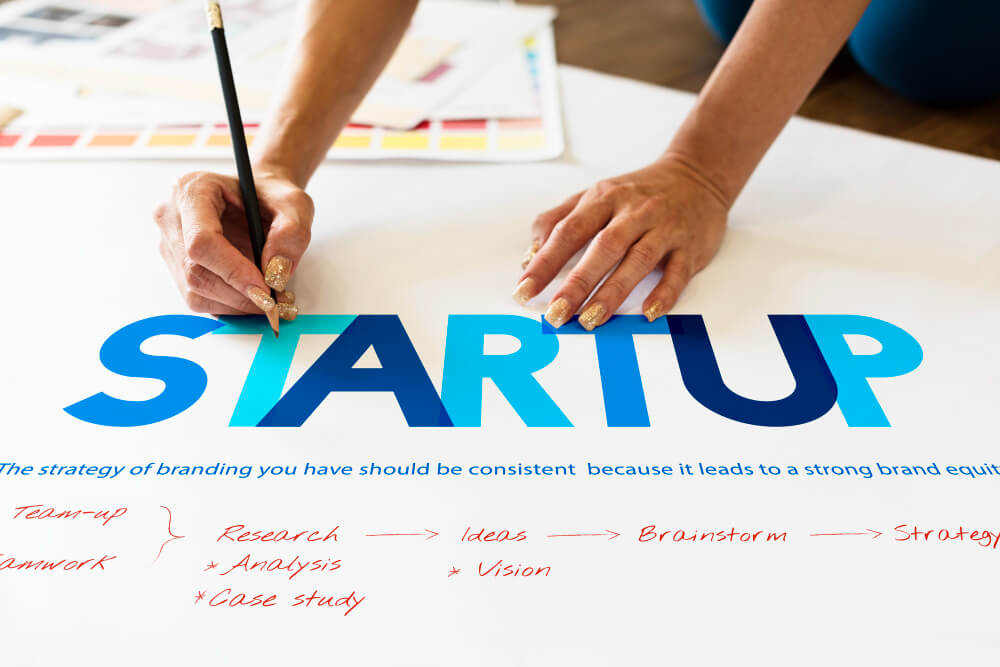You have a lot on your plate as a business owner, but accounting doesn’t have to be one of them.
There are several excellent accounting tools available that can assist you in not only getting your books in order but also running your business more efficiently.
Accounting computer programs software can help you keep track of your finances, provide essential data and insight, and automate tasks to save time.
Unlimited users, complex features, hundreds of integrations, and robust security are all included in the best accounting software, all for a reasonable monthly charge.
Accounting software is required to manage your company’s financial health accurately.
Of course, the software you select should be directly dependent on the size and scope of your company.
There are more good accounting programs options than ever, all at various prices to fit any budget. It’s time to find the right product for you.
Table of Content
Why Are Accounting Software Important?
Every day, most accountants deal with hundreds, if not thousands, of transactions. They also had to summarise and present these transactions with the highest degree of precision possible. This rigorousness of their position is because, at the end of time, these reports will serve as a significant basis for future decisions.

Before accounting software in the UK, businesses recorded each transaction manually in excel or paper ledgers.
As a result, not only was their job several times more complex than previously, but the accuracy of their reports was also highly unreliable.
All of this has changed thanks to accounting software and cloud based accounting.
Read also: AI in Accounting: what are the benefits of AI in the Financial industry?
5 Most common Accounting Software

To assist you in finding the most appropriate software for your company, we’ve compiled a list of your businesses’ top 5 accounting software applications.
1. QuickBooks – accounting software
It is one of the most well-known accounting tools available in the market.
Intuit, a California-based financial software company, initially developed the software to meet the demand for simplified accounting platforms.
QuickBooks claims to have an estimated 85% retail market share today.
There are three versions of the software.
● The first is the software’s original desktop version. The desktop version provides the user with various services such as remote payroll assistance and outsourcing, online banking and reconciliation, remote access capabilities, electronic payment functions, and more.
● QuickBooks Online is a cloud-based service where users are ready to pay a monthly subscription for exclusive access to the product.
● Finally, QuickBooks Point of Sale is one of Intuit’s most recent products. It seeks to take the position of traditional cash registers by adding features like inventory tracking, customer information, sales, and more.
2. FreshBooks – accounting software
FreshBooks began as a simple invoicing software and today has over 30 million users, thanks to the addition of new features throughout time.
There are four different plans, and firms can get a 10% discount if they pay annually rather than monthly.
Invoicing is the most critical accounting requirement for most service-based firms. In comparison to other best accounting software, FreshBooks allows users more invoicing customisation.
Its primary purpose is to send, receive, print, and pay invoices, but it may also do basic bookkeeping for a company.
This software supports Many third-party app integrations, including Gusto, G Suite, and others. Other features include expense and project time tracking, report payment, etc.
3. Xero Accounting software
Xero is available as a “software as a service” product, with users paying monthly subscriptions to access the platform.
Since its initial release, the product has been accessible in over 180 countries worldwide.
Some of the significant offerings of the software are an automatic bank feed, credit card account feeds, accounts payable, invoicing, inventory management, payroll, fixed asset depreciation, purchase orders, expense claims and standard business and management reporting.
The Xero online accounting bookkeeping software platform is a basis for firms to create a comprehensive company solution.
It connects businesses to their bank, digital accounting software, accountants, payment providers, and third-party apps, ensuring that everything is secure and accessible at all times and on any device.
Accounting and bookkeeping firms can also use Xero to access effective compliance solutions, smart practice management software, and a cloud-based single accounting ledger for all clients in one place.
4. Wave accounting software
Wave is free accounting software for small business and accountants that includes all the essential accounting tools most small businesses require, such as income and expense tracking, invoicing, financial reporting, and receipt scanning.
These functionalities are available both online and through the mobile app.
Customer payment processing and payroll are premium services that require extra charges, while all bookkeeping, invoicing, and reporting functions are free.
5. Zoho books accounting software
Any Zoho product is excellent, and the company’s productivity suite can help you optimise your firm. Zoho Books, the company’s accountancy software, is likewise of outstanding quality, which is why it ranks so high on the client’s preference.
This award-winning solution is highly cost-effective. It simplifies automating bank feeds, sending automatic payment reminders, and generating and managing retainer invoices.
The system is unique as it integrates with Stripe and makes it simple to do payment reconciliation.
For a limited time, you can use all of the features to evaluate if the product meets your requirements.
Zoho Books encourages collaboration to eliminate miscommunication between a company’s accounting and sales departments. It has mobile optimisation and an API for integrating with other business software.
You can also make use of pre-made integrations with other Zoho products. It also introduced new features, including recurring journals, bulk payments received, and project deletion, as well as improving existing capabilities like invoice templates and custom domains.
Above all the list of accounting software you can look for your accounting works.
Know more: Top 50 Accountants in London UK
Categories of accounting software
Basic Accounting software is available in various forms. The resources listed below might assist you in figuring out the type you’ll need and what characteristics you should consider.
1. Core accounting software
Core accounting software manages the company’s general ledger, payroll, essential tax filing functions, bookkeeping, and bank reconciliation and performs accounts receivable.
Companies may improve their organisation and move beyond managing accounts on paper or in a spreadsheet using these features.
2. Payroll accounting software
You can use payroll software combined with essential accounting software or as a stand-alone best-of-breed solution.
Teams seeking the best payroll software should look for a system that interfaces with or includes time and attendance software, automates payroll for salaried and hourly wage workers, and complies with the company’s tax and regulatory rules.
3. Billing and invoicing accounting software
Billing and invoicing can be simple in theory but may be complicated if you don’t have the necessary tools. Billing and invoicing services manage the complex accounting procedures that many accounts payable and receivable departments perform.
The best billing and invoicing software come in various levels of complexity, but most of them allow you to automate formerly manual operations and eliminate manual entry errors.
These solutions are available as a more robust financial management software or as a stand-alone option.
4. Project accounting software
Complex, interdepartmental, or inter-company projects with sensitive resources and capital allocations can be streamlined with project accounting software.
Project accounting tools reduce the gap between essential task-oriented and core accounting software platforms by offering time and expense tools, human and material resource management, billing and invoicing elements, project management and analysis.
Read more: When should you hire an accountant for your business?
Benefits of accounting software
1. Time savings
When organisations switch from paper or spreadsheets to accounting software, they notice a significant reduction in the time they spend entering and balancing ledgers.
For instance, you don’t need to download CSV files from your credit card or bank accounts and manually enter data on your spreadsheet to review your transactions: Accounting software automatically pulls all the data for you.
2. Greater account visibility for all internal stakeholders
Top accounting features and tools give accountants, executives, and management teams visibility into a company’s balance sheet and financial operations.
Each team can use the data differently, either within the online simple accounting software or exported to business intelligence software to have all the necessary information.
3. Higher professionality
Most people believe what they see, and a company that appears more professional is thought to be more successful and trustworthy.
When it comes to invoicing and payroll, you want to put your best foot forward with your clients, and accounting software may help you achieve that.
4. Easier auditing
You’ll have an audit trail if you utilise business accounting software, so you’ll be able to see what modifications were made to the books, who made them, and when they were made.
If you are audited, such information may be easily and quickly obtained, leaving no doubt about how things were handled previously.

Final thoughts
Bookkeeping and Accounting software should include functions that automatically manage your income and expenses.
This makes it possible for you to concentrate on making efficient decisions for your company’s planned growth. The business accounting software listed above are undoubtedly the best for all enterprises.
Software assists in streamlining accounting processes and allows business owners to concentrate more on work productivity and growth.
The features differ significantly depending on your business’s demands, and you should choose the one that best meets your requirements.








